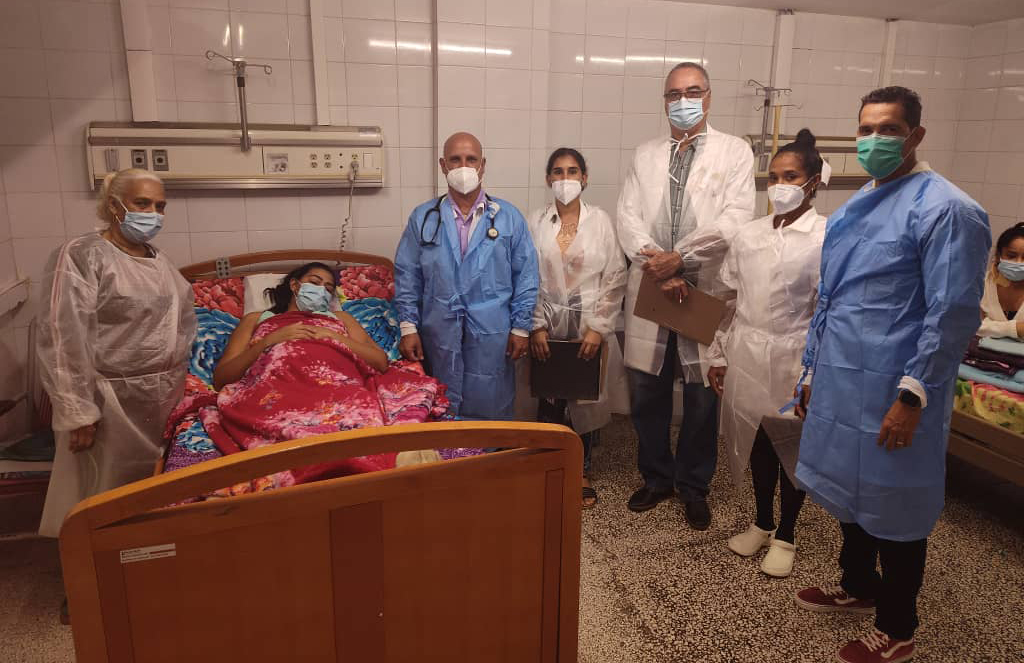
Donating an organ from a deceased loved one transcends science and enters the heart of human solidarity.
Recently, the first kidney transplant of the year was performed in Villa Clara, a surgery that renews a patient's life and reaffirms the commitment of Public Health, which, even in very difficult conditions, defends life. Dr. Yuniel Gonzalez Cardenas, a first-degree specialist in Comprehensive General Medicine and a second-degree specialist in Nephrology, and regional coordinator of donation and transplants, shared the details of this significant event.
Since 2001, Villa Clara has been a pioneer in this type of procedure, accumulating a track record of more than 500 transplants.
The regional service not only serves the province but also extends its reach to Cienfuegos, Sancti Spiritus, and the Colon municipality of Matanzas, consolidating its position as a central hub for kidney care.
Transplant surgeries, as Gonzalez Cardenas explained, are highly complex procedures and require a prolonged effort, both physical and logistical, and consume considerably more resources than conventional operations. However, their purpose is profoundly human: to offer a new opportunity to those battling kidney failure.
Worldwide, the cost of a kidney transplant is estimated between $40,000 and $70,000. These procedures in these areas of central Cuba achieve postoperative survival rates comparable to the most demanding national and international standards, reaching a success rate of 85% after the first year after surgery.
Despite these achievements, the path is not without obstacles, as the economic, commercial, and financial blockade negatively impacts the development of the specialty and impedes the acquisition of medical supplies, reagents for diagnostic studies, and essential medications, including cutting-edge antibiotics.
Dependence on imports from Europe and Asia becomes imperative, given the impossibility of accessing supplies from the US market due to such imperial sanctions, the interviewee explained.
The success of each transplant is, in essence, a tribute to the altruistic gesture of families who, when a loved one faces brain death, consent to organ donation stands as an act of profound sensitivity and love.
The decision to save a human being in need constitutes an indescribable bond, a form of transcendence in which a part of the person who has departed continues in another body.
It is a step that moves us for its immensity, for its ability to transform pain into hope.
On this occasion, Ianisbel Garcia Martinez, who received hemodialysis for four years, experienced rebirth after the transplant and, moved, thanked God and the medical team that made this intervention possible.
"It's a new opportunity to live," she expressed with emotion. “Depending on a machine that filters your blood three times a week, cleans it of toxins, and returns it to your body so it can last three more days until the next session is exhausting, to say the least.
“Only those who have experienced this process or have a loved one go through it know that along with the joy of another day, there is pain, fatigue, stress, and fear—many fears.
” Estrella Martínez Guevara, Ianisbel's mother, shared her daughter's long struggle for recovery and explained: “We have been fighting for many years.”"I thank the doctors for their dedication amidst so many difficulties, and especially the donor's family.
Their generosity has given us hope and saved a life. Since resuming operations on June 15, 2001, the Arnaldo Milian Castro Clinical and Surgical Hospital has witnessed the recovery of more than 500 patients from the central region of Cuba, who received kidney transplants with magnificently effective results.
Each of these cases represents a unique story, a testament to the power of science, combined with the purest expression of human solidarity.
Sidebar

 Agencia Cubana de Noticias
Líder en información nacional
Agencia Cubana de Noticias
Líder en información nacional








Nos reservamos el derecho de no publicar los comentario que incumplan con las normas de este sitio